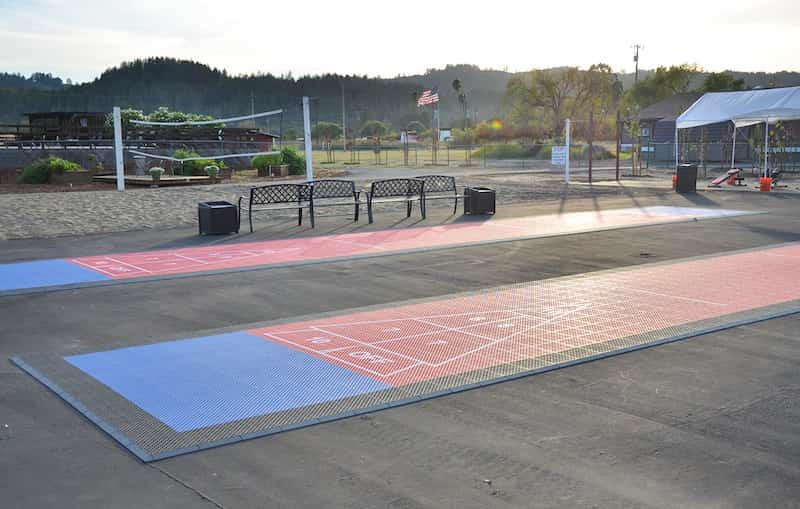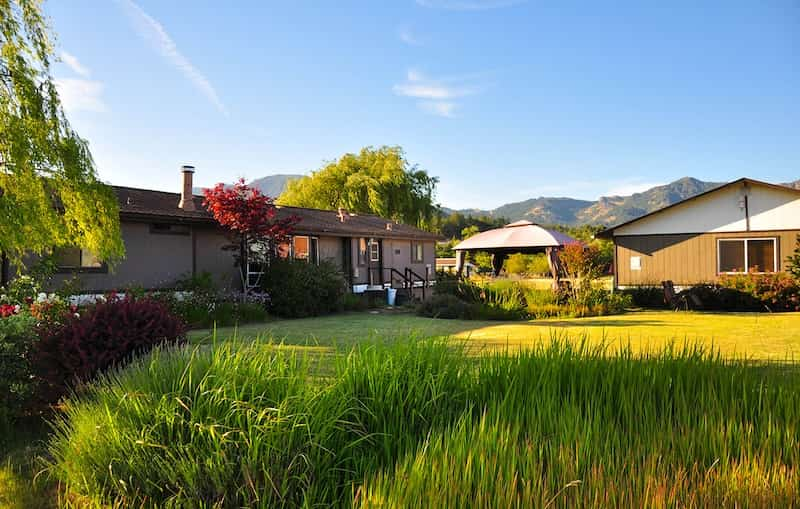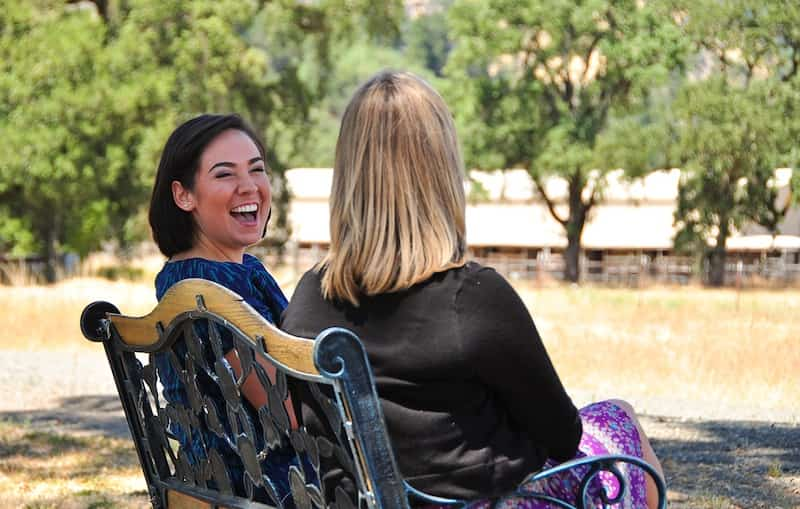With over 38,000 guests treated and a completion rate over 90%, Duffy’s Napa Valley Rehab outperforms other residential PCP addiction treatment centers by building the necessary foundation for long-term recovery through expert 12-Step treatment for PCP addiction in Northern California.
Learn More About PCP Addiction Treatment
Learn more about PCP addiction treatment at Duffy’s Napa Valley Rehab in Northern California
PCP is a volatile drug that, when abused, can expose a person to a wide range of devastating outcomes. PCP is short for phencyclidine, also referred to as rocket fuel, wet, and angel dust. PCP abuse can impair a person’s judgment, trigger aggressive behaviors, elicit a sense of invincibility, and erode a person’s ability to differentiate between reality and hallucinations and/or delusions. As a result of these effects, PCP can lead an individual to engage in behaviors that are dangerous both to him or her and to those who come into contact with him or her. It is not an overstatement to note that continued PCP abuse can have a devastating impact on a person’s mind and body.
At Duffy’s Napa Valley Rehab, we are familiar with the many ways that PCP abuse can ravage a person’s life, and we are dedicated to helping people emerge out of the darkness of PCP addiction and into the bright promise of a PCP-free life. At Duffy’s PCP treatment center, we have developed specialized programming that can provide men and women whose lives have been disrupted by PCP abuse with the care that they need to overcome their self-defeating behavior patterns and resume their pursuit of a healthy and productive future.
How to Help a Loved One
Helping a loved one get treatment for PCP Addiction
Discovering that a friend or family member has been abusing PCP can be a frightening experience. While you are right to be concerned, you should not let your fear stop you from taking action. You cannot cure your loved one’s problem, but you can play an important role in getting him or her into a PCP rehabilitation program where he or she can get what may literally be life-saving care. Please consider the following:
- Learn about the signs and symptoms of PCP addiction and abuse, and get an understanding of how PCP impacts a person’s mind and body. PCP is an unpredictable substance, but the better you understand how your loved one may act, and why he or she may act this way, the better able you will be to providing meaningful assistance.
- Be sure to secure your own safety and do what you can to protect your loved one’s well-being as well. As noted above, without PCP addiction rehab, individuals act in ways that endanger themselves and those with whom they come into contact. Risking your own physical or psychological safety is counterproductive, and will not help either you or your loved one.
- If possible, involve a small group of trusted friends or family members in your effort to help your loved one. This group can help to monitor your loved one’s safety, ensure the safety of each other, and provide invaluable tangible and emotional support
- Research treatment options and identify specific PCP treatment programs that offer the type and level of care that your loved one needs.
- Talk to your loved one. You should never attempt to have this conversation while he or she is under the influence of angel dust or any other drug, and ideally you should not conduct this conversation alone. Express your concerns and talk about PCP addiction treatment center options.
- Listen to your loved one. His or her response will let you know what your next steps should be.
- If your loved one is resistant to the idea of getting help, consult with experts to learn more about how to convince a person to get help for a substance abuse problem.
- When your loved one is ready to get help, provide the tangible support that will remove obstacles that may prevent him or her from following through. Assist by scheduling appointments, providing transportation, and even attending initial addiction program visits with your loved one.
Never forget that treatment is just one step along the long path of addiction recovery. Your loved one will encounter successes and setbacks along the way. He or she will need a strong support network throughout the entire journey.
Why Consider Treatment
Why consider treatment for PCP addiction at Duffy’s Napa Valley Rehab in Northern California
It is virtually impossible to over-exaggerate the level of devastation that PCP abuse and addiction can inflict upon on a person’s life. Continued PCP abuse can have a profoundly negative impact on the substance, quality, and duration of a person’s life. Potential physical dangers of PCP abuse can include injury related to aggressive behaviors and health damage due to the effects of the drug itself. Possible psychological damage includes diminished cognition and the onset of psychosis. PCP exposes individuals to severe legal consequences, include arrest and incarceration. People who continue to abuse PCP and who fail to seek treatment for this self-defeating behavior are at an increased risk for occupational failure, job loss, financial problems, ruined interpersonal relationships, and the loss of support from friends and family members. However, with effective comprehensive treatment, a person can heal from the damage of PCP abuse, avoid future harm, and once again begin to live a promising and productive life.
Types of Treatment
Types of PCP addiction treatment offered at Duffy’s Napa Valley Rehab in Northern California
Situated on 23 acres of tranquil, picturesque land of Northern California, Duffy’s Napa Valley Rehab Center is a pioneering provider of top-notch PCP addiction treatment for men and women aged 18 and older who wish to reclaim their lives from substance abuse and chemical dependency. With a mission to break through the ties that can bind a person to a substance or substances, we offer invaluable education, compassion, and the skills needed achieve and maintain sobriety. Duffy’s is truly where the destructive path of addiction can come to an end.
Grounded in the 12-Step principles of Alcoholics Anonymous, the PCP abuse treatment offered at this our addiction center makes for a transformative experience that can improve upon the lives of all who come for care. Trained, experienced, and dedicated staff members, many of whom have worked at our center for several years, go above and beyond to ensure that guests’ recovery journeys are both life-changing and meaningful. Upon completion of our streamlined admissions process, individualized treatment plans are created by these staff members so as to address and treat the concerns our guests come to us with. Within these plans, the following proven-effective and evidenced-based methods of care may be included as part of a man or woman’s experience at Duffy’s:
Medication management: If a guest is requiring medication in order to manage the symptoms of a mental health condition while working on recovering from an addiction to PCP, we at Duffy’s are pleased to be able to facilitate meetings with a psychiatrist on an as-needed basis. Our staff assists guests in providing them access to their medications, and the dosages administered are monitored closely so as to ensure the safety of all guests who require pharmaceutical interventions while in our care.
Individual therapy: Each man and woman who chooses to recover at Duffy’s is assigned a primary care counselor for the duration of his or her treatment. These staff members facilitate individual therapy sessions two times each week so that guests are able to process their feelings, emotions, and experiences in a private setting with a qualified professional. We believe that it is beneficial for those who are grappling with an addiction to PCP to take part in individual therapy, as this method of care allows them to openly discuss their experiences in a setting that is extremely conducive to both healing and recovering.
Group therapy: So as to provide guests with optimal support, Duffy’s PCP addiction rehab center in Northern California is proud to offer several group therapy opportunities to guests who are battling addictions to PCP and other substances. Peer-led group therapy sessions occur four days per week and are driven by the topics that are personal and relevant to our guests’ recovery journeys. Additionally, our staff conducts group therapy sessions once per day, which include a check-in and cover the following addiction- and recovery-related topics:
- Self-awareness
- Relapse prevention
- Acceptance
- Mindfulness
- Responsibility
- Powerless and unmanageability
Experiential therapy: Typically occurring during staff-led group therapy sessions, Duffy’s supplies various experiential therapy sessions during a guest’s time with us. These sessions enable men and women to reconnect with themselves, and allow them to experience healing on a profoundly deeper level. The following experiential therapies are those that a guest can participate in while working to overcome an addiction to PCP:
- Meditation
- Art therapy
- Trust the Process
- Music and recovery
- Trust-building exercises, including surrender falls
- Emotional Freedom Technique (EFT)
- Crossing the Line
Family therapy: Because Duffy’s addiction treatment center is committed to helping both guests and their loved ones in Northern California when an addiction to angel dust is affecting their lives, the programming we offer includes family therapy sessions. Occurring weekly, these sessions help those we treat and those closest to them heal from the pain addiction has caused and become a united front against further substance abuse. Additionally, we also offer educational groups on the weekends that are led by our staff and provide guests’ loved ones with the information and support they require at this stage in their love one’s recovery. Lastly, we afford each guest with the opportunity to request a private family session with his or her primary care counselor near the end of his or her time with us so as to prepare for what lies ahead after leaving Duffy’s.
Depending on the guest’s needs, we can customize a plan of treatment that befits what the individual needs during his or her recovery journey. We work side-by-side with the men and women who come to Duffy’s, and we will do all that we can to ensure that each person entrusted into our care is receiving only the most appropriate methods of treatment. Because of this, the inclusion and frequency of the above interventions within a guest’s treatment plan will rely on where the individual is at in his or her recovery.
Nearing the end of a guest’s time at our addiction rehab center, our staff will collaborate with each person to determine the most appropriate follow-up services that will allow him or her to remain on the path of recovery for the long-term. Additionally, for those who receive care at Duffy’s for a minimum of 21 days, three months of continuing care services will be offered, which include therapy sessions with addiction specialists, drug screenings, and 12-Step process groups via Full Circle Recovery. We supply this offering as a means of upholding our commitment to helping those we treat achieve both their treatment goals and the sober lives that they are capable of living.
In choosing Duffy’s Napa Valley Rehab in Northern California, you or your loved one will become part of our family. Regardless if you complete our Relapse Restart, Foundational, or Extensive Relapse Prevention Program, you or someone you care about will be treated with the dignity and respect that is deserving of all people, and will receive the care needed to win the war against an addiction to PCP. Do not let PCP diminish your life for one more day. Call us today and begin your successful pursuit of a much brighter tomorrow.






















